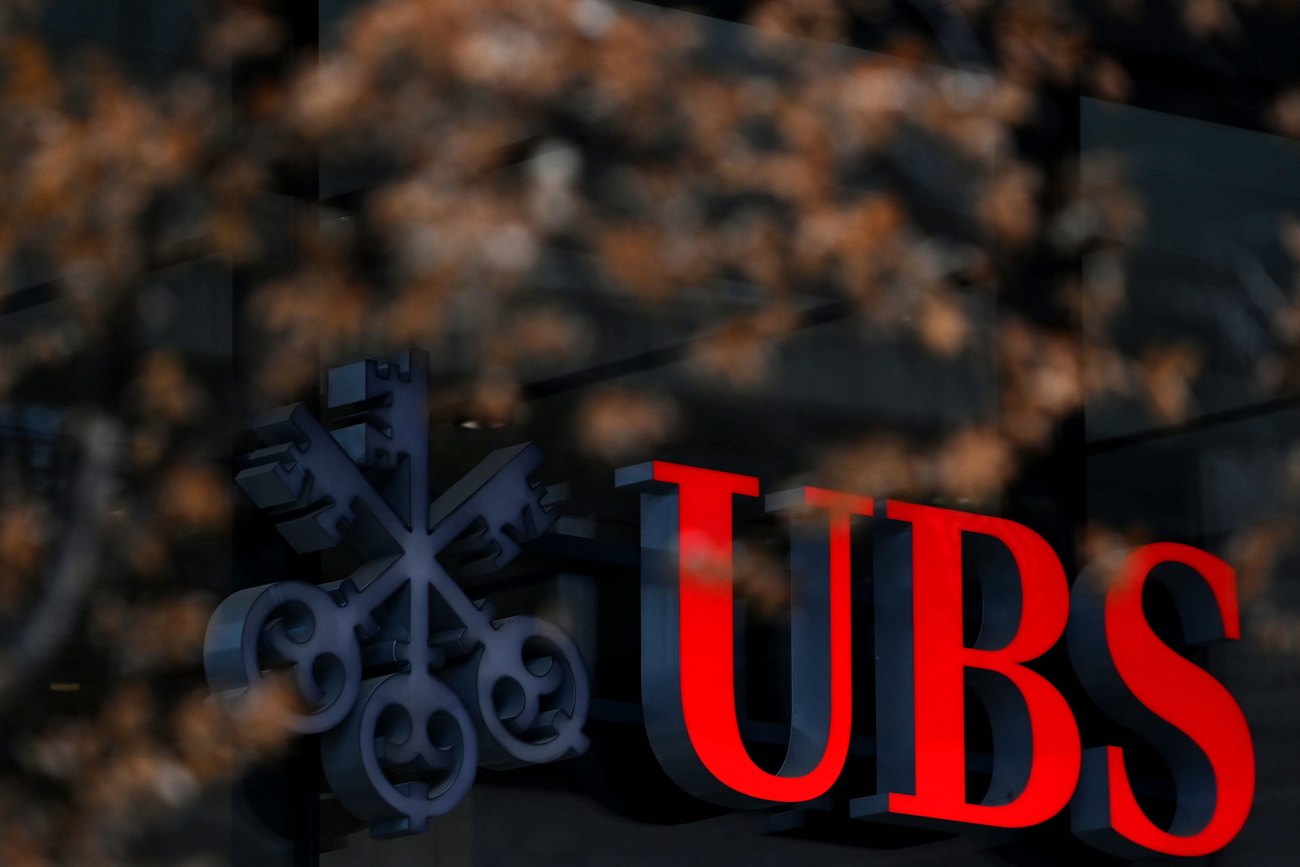How Credit Suisse’s seismic demise rippled around the world

Credit Suisse is one of around 30 “too big to fail” global banks with branches scattered around 50 countries.
Its failure created market turbulence, crashed bank share prices and raised legal questions about the way shareholders and bondholders were forced to accept a last-ditch takeover by UBS.
SWI swissinfo.ch analyses the impact of Credit Suisse’s demise in every corner of the globe.
US/UK: CHF4.8bn loss from the collapse of New York investment group Archegos Capital Management
The bright lights of Wall Street lured Credit Suisse like no other Swiss bank. It’s therefore ironic that the final nail was driven into Credit Suisse’s coffin from the United States.
The forced fusion with UBS “added a global dimension to a banking crisis that broke out on the West coast of the US with the failure of Silicon Valley Bank,” notes the Wall Street Journal.
The Financial Times reports that UBS wants to cancel Credit Suisse’s planned reboot of its Wall Street investment banking unit – which was to be named CS First Boston after the US bank that was acquired in 1988.
In London, where Credit Suisse employs more than 5,000 staff, there are fears that job cuts could further undermine a financial centre already under duress following Brexit.
+ Why a monster UBS bank scares Switzerland
Middle East: 20% CS stake held by Saudi National Bank, Qatar Holding & Olayan Group combined.
The chair of the Saudi National Bank has resigned after investing billions into Credit Suisse and adding to the panic by saying there was no more money to come. Most of the investment vanished on paper as a result of the UBS takeover.

More
Saudi silence after the Credit Suisse crash
The Saudi National Bank, the Qatar Investment Authority and Olayan Group between them own roughly a fifth of Switzerland’s second-largest bank.
The Saudi newspaper AlsharqExternal link noted that it is unclear how much the Swiss government consulted with these entities before rubber-stamping the UBS deal. “There is always a government somewhere ready to intervene to protect its national interests, away from all shareholders,” it said.
The Saudi National Bank put a brave face on its losses, saying the investment represents less than 0.5% of its assets. But some social media commentators portray the Saudi bank as losers while Credit Suisse executives enjoy their bonuses.
APAC: CS employs around 3,500 staff in Singapore
The Asia-Pacific region, particularly Singapore and Hong Kong, is a hotbed for wealth management and a key zone for both Credit Suisse and UBS.
The media reports that UBS sent top managers to a Credit Suisse conference in the region to prioritise the retention of staff during the takeover.
Both banks employ roughly 3,500 staff each in Singapore, which attracts much of Asia’s increasing wealth. UBS has been in the country for over 50 years and played a leading role in setting up its wealth management hub.
The Singaporean authorities do not expect the demise of Credit Suisse to have dramatic adverse effects. But the fused Swiss banks will face a fiercely competitive fight to retain clients and experienced staff.
Germany: Germany’s top four financial groups employ 99.5% more staff than CS in Frankfurt
The German media spies more opportunity than despair for the country’s financial sector following the collapse of Credit Suisse.
Credit Suisse operates in the banking district of Frankfurt am Main, employing fewer than 500 staff. That’s a drop in the ocean compared to the more than 100,000 people employed by the four largest German financial institutions alone.
The Frankfurter Allgemeine Zeitung (FAZ) believes German competitors, including Deutsche Bank and Commerzbank, can benefit from Credit Suisse’s demise. But such headlines ignore the fact that Deutsche Bank is facing its own wobbles, prompting Chancellor Olaf Scholz to voice his support for the bank’s future.
UBS is also tipped to strengthen its position in Germany. “This will make Frankfurt the EU headquarters of a very strong European asset and wealth management sector,” Hubertus Väth, managing director of the Frankfurt am Main Finance financial centre initiative, told FAZ.
FAZ also quotes Frankfurt finance professor Volker Brühl, who says banking supervision is much more rigid in Europe than in Switzerland, which should dampen contagion in the eurozone financial sector.
France: €1.8 billion tax evasion fine
In the days leading up to Credit Suisse’s takeover by UBS, French Prime Minister Elisabeth Borne personally intervened by asking Bern to “settle” the problems to avoid further financial market disruption. Share prices of large French banks, such as BNP Paribas, Crédit Agricole or Société Générale, took a beating during the turmoil.
More
Speaking to public radio France Inter the day after the deal was announced, the Governor of the Banque de France, François Villeroy de Galhau, brushed aside contagion concerns for the French financial centre. “This is not a subject for French banks,” he said. “To put it very simply, French banks are very solid.”
Despite the abolition of banking secrecy in 2009, the Swiss financial centre retains a bad reputation in France. Swiss banks are associated with decades of helping thousands of wealthy French people evade taxes. This was reinforced when Credit Suisse rival UBS was fined €1.8 billion (CHF1.8 billion) in 2021 for tax evasion after a high-profile court case in Paris.
Russia: CHF17.6bn of Russian assets in CS accounts
Moscow has listed Credit Suisse as a financial institution of a hostile country ever since Switzerland started imposing sanctions on Russia.
According to Forbes Russia, Credit Suisse decided to withdraw from the Russian wealth business in May 2022. Russian clients had to transfer assets to Switzerland to remain with the bank. In July 2022, Western-sanctioned Transcapitalbank (TCB) persuaded a court to confiscate the Russian assets of Credit Suisse. A Moscow arbitration court seized 100% of shares of both Credit Suisse structures in Russia (Bank Credit Suisse Moscow and Credit Suisse Securities) along with around €10 million in cash.
The Swiss SonntagsZeitung newspaper reports that Credit Suisse vaults contain CHF17.6 billion ($19.2 billion) of frozen Russian assets worldwide. This includes CHF4 billion belonging to people on the Swiss sanctions list. The remaining CHF13.6 billion is frozen by sanctions imposed by other countries. Some of these funds could be from the Russian central bank and the Russian state.
Credit Suisse was a prominent sponsor of the Bolshoi Theater in Moscow, but the bank’s name has now disappeared from the theatre’s website and other communications.
China: Just 2,000 CS employees
Credit Suisse has around 2,000 employees in China to service wealthy Chinese residents. But the bank’s demise has barely caused a ripple.
UBS’s acquisition of Credit Suisse had no direct short-term impact on China but may have some impact on the future development of the country’s financial markets.
The enlarged UBS has been tipped to further strengthen its influence in China and is well placed to promote the internationalisation of the Chinese financial market.
Japan: Around 20 people staff the Credit Suisse investment banking desk in Japan
In Japan, where Credit Suisse does not have a significant presence, most anxiety centres on the Swiss financial regulator writing off CHF16 billion of Additional Tier 1 bonds (AT1s).
Japan’s Financial Services Agency has not received any reports of major losses from domestic financial institutions, the media reports. Only four asset managements in Japan have disclosed their AT1s holdings, all of which are less than 1%.
“Until now, there has been little awareness of the losses that could be incurred on AT1s,” Sayuri Ito, research director at the NLI research Institute, told Japanese public media NHK. “There is concern that the market turbulence around this risk could spill over into the financial system.”
Japan is one of the countries where banks have suspended new AT1 deals until the market stabilises, according to the Financial Times.
Spain/Latin America: 700 CS staff employed in Spain and Latin America
Credit Suisse employs some 700 staff in Spain, Mexico, Peru, Chile, Colombia and Venezuela, offering investment banking and wealth management services to a select elite.
Officials in Spain and Latin America insist that the bank’s problems will not have much of an effect in the regions.
The Latin American press reported the news with measured and distanced commentary.
Spanish media such as El País, Cinco Días, El Español or Blog Salmón focused on three issues: the potential domino effect for small savers, predicting that UBS will sell its Credit Suisse subsidiary in Spain, and the write-off of CHF16 billion in Credit Suisse AT1 bonds.
Portugal/Brazil: CS spent $675 million to buy Banco de Investimentos Garantia Brazilian investment bank in 1998
Brazilian president, Luiz Inácio Lula da Silva, was scathing about the situation when interviewed by the Brasil247 channel. “What is the explanation for Credit Suisse borrowing $54 billion [from the Swiss central bank]?” he asked. “Seven percent of Switzerland’s GDP is being used to save Credit Suisse.”
The InfoMoney portal believes that the merger of Credit Suisse and UBS should not affect current operations in Brazil but might slow the capture of new business by the Swiss giant.
According to data from the Central Bank’s IFData system, Credit Suisse and UBS together have 43.9 billion reais (CHF7.2 billion) in assets in Brazil.
Italy: CS branches fell from 30 to eight in Italy
Credit Suisse has reduced its Italian presence in the past decade, slashing the number of bank branches from around 30 to eight, employing some 300 staff.
The Italian asset management association Assogestioni estimates that Credit Suisse manages €11.5 billion of assets in the country.
The Milanofinanza news portal says the merger of Switzerland’s two largest banks will result in a leading position in Italian wealth management – with a market share of around 4.3%.
Italian Economics Minister Giancarlo Giorgetti said the rescue of Credit Suisse by UBS would have “insignificant consequences for the Italian banking system.”
The Italian media concentrated on the “dangerous precedent” of the Swiss financial regulator controversially striking off CHF16 billion of Credit Suisse AT1 bonds. The move has angered investors and could lead to legal complaints.
swissinfo.ch

In compliance with the JTI standards
More: SWI swissinfo.ch certified by the Journalism Trust Initiative














You can find an overview of ongoing debates with our journalists here . Please join us!
If you want to start a conversation about a topic raised in this article or want to report factual errors, email us at english@swissinfo.ch.